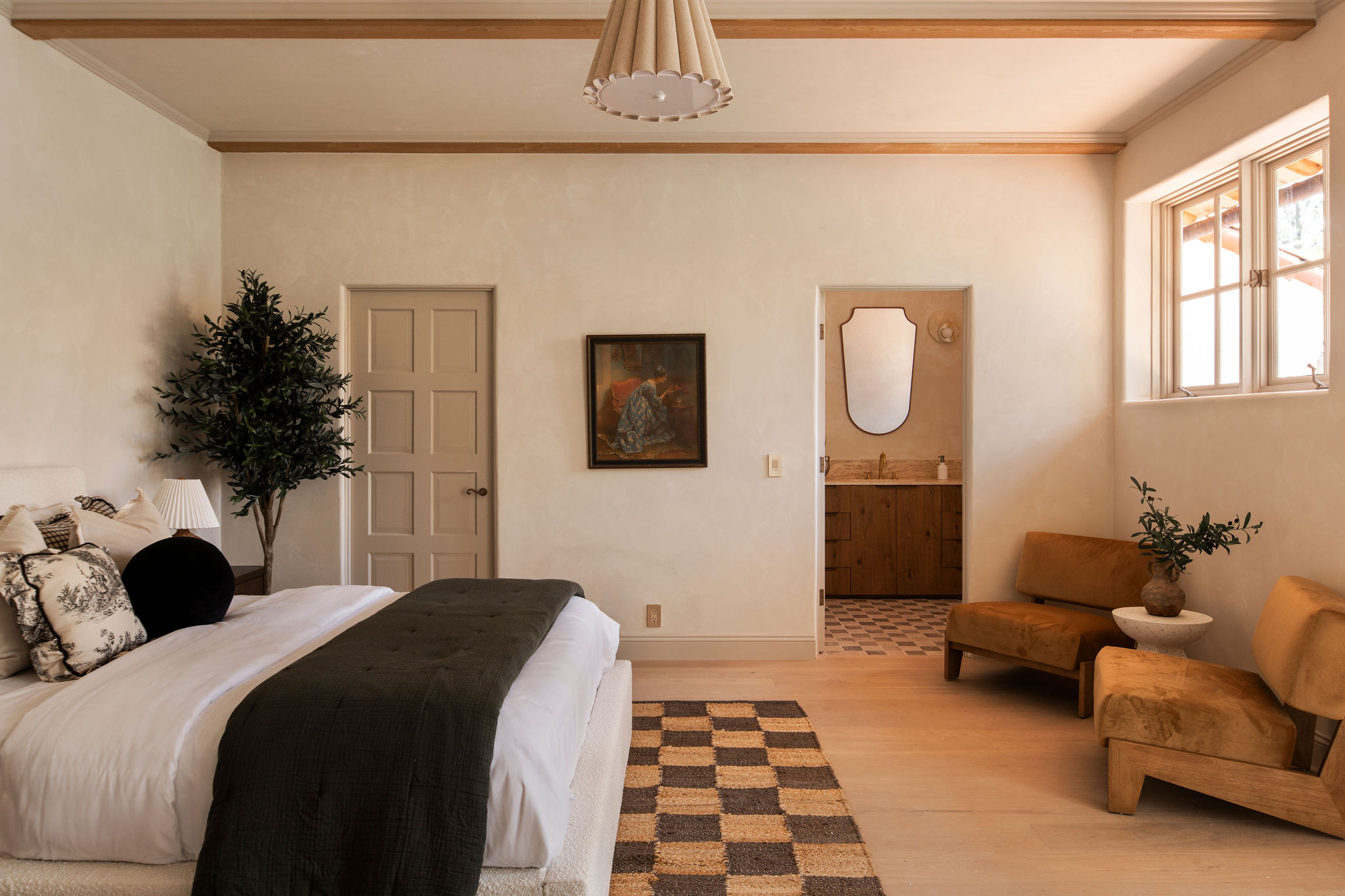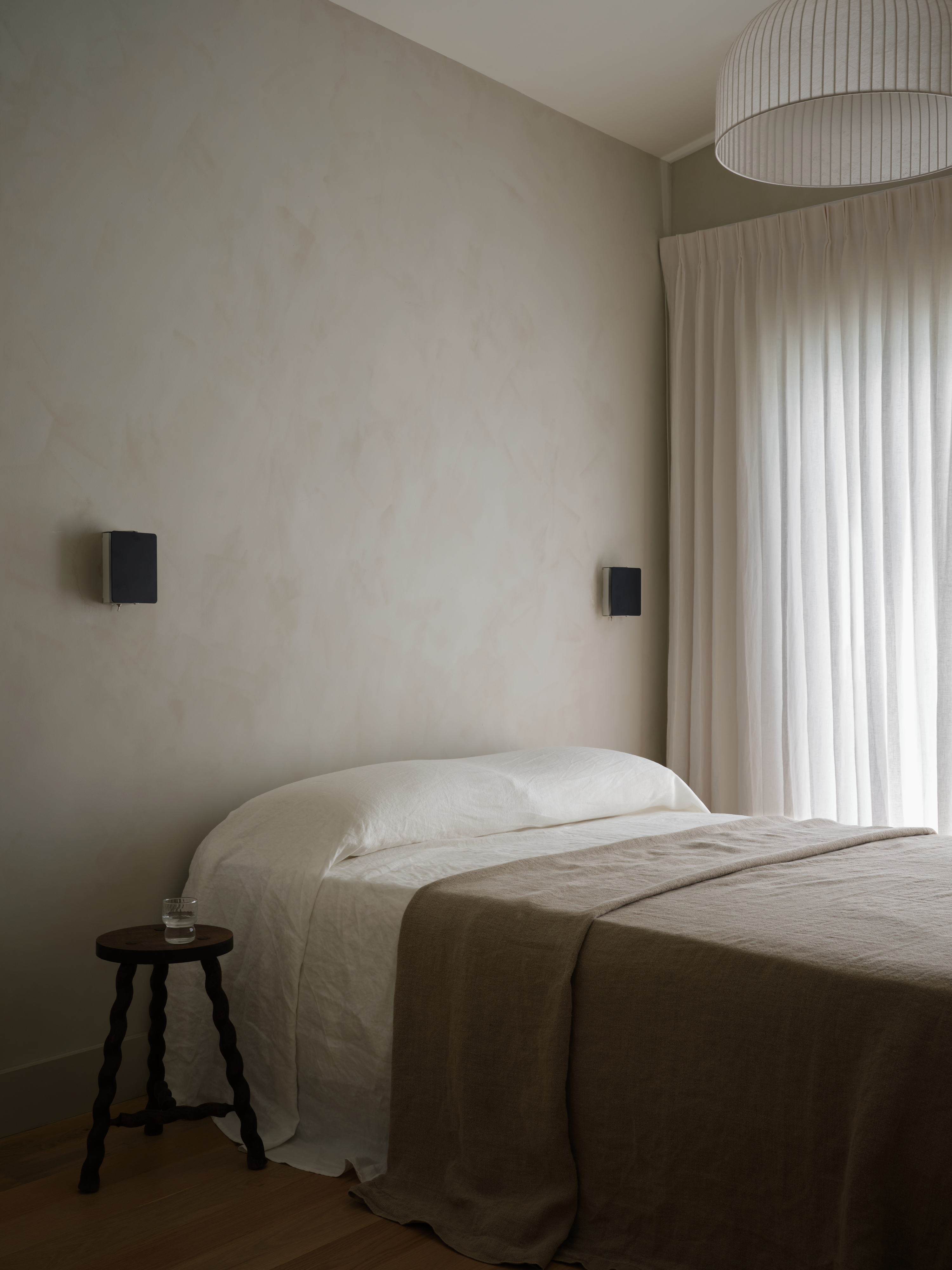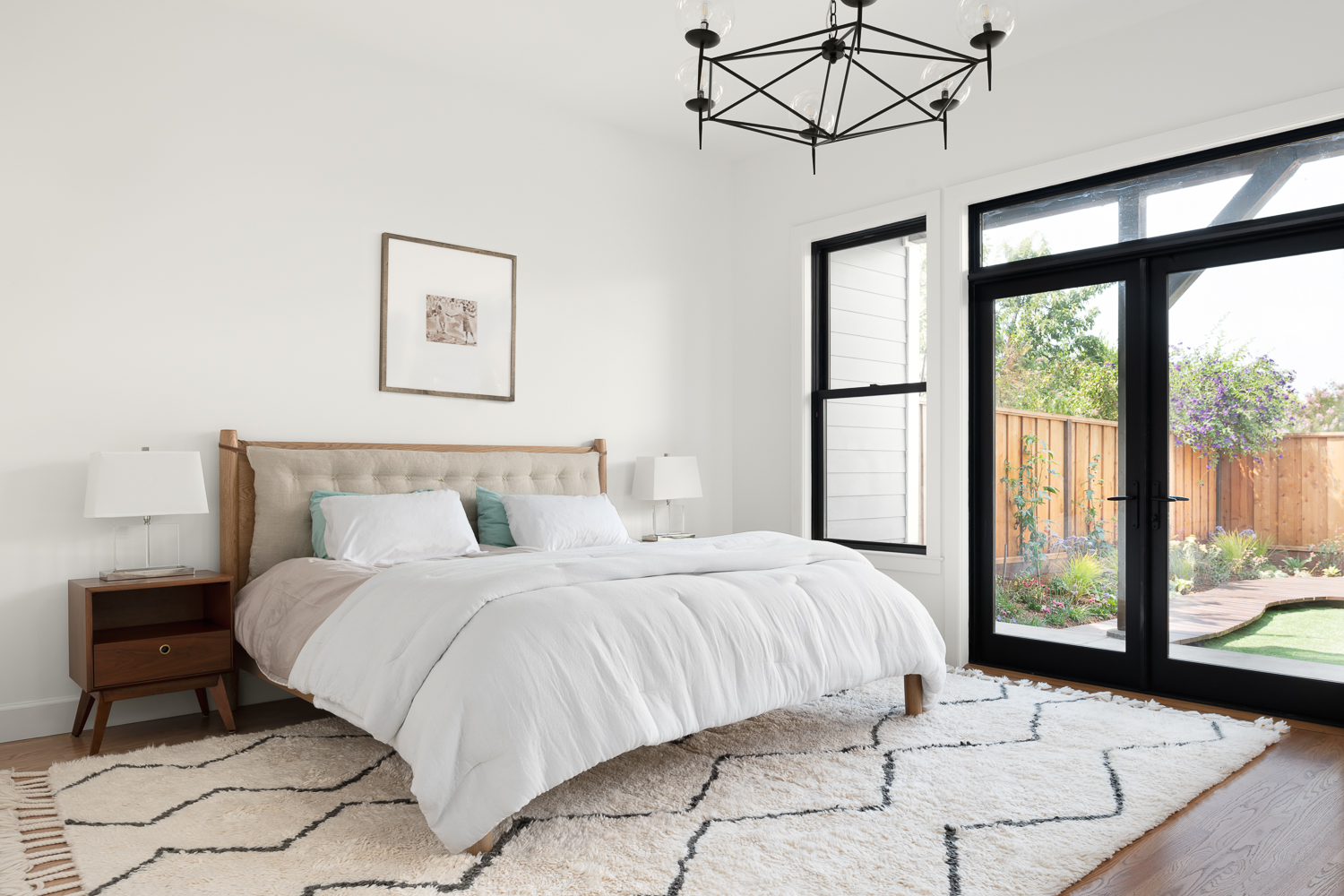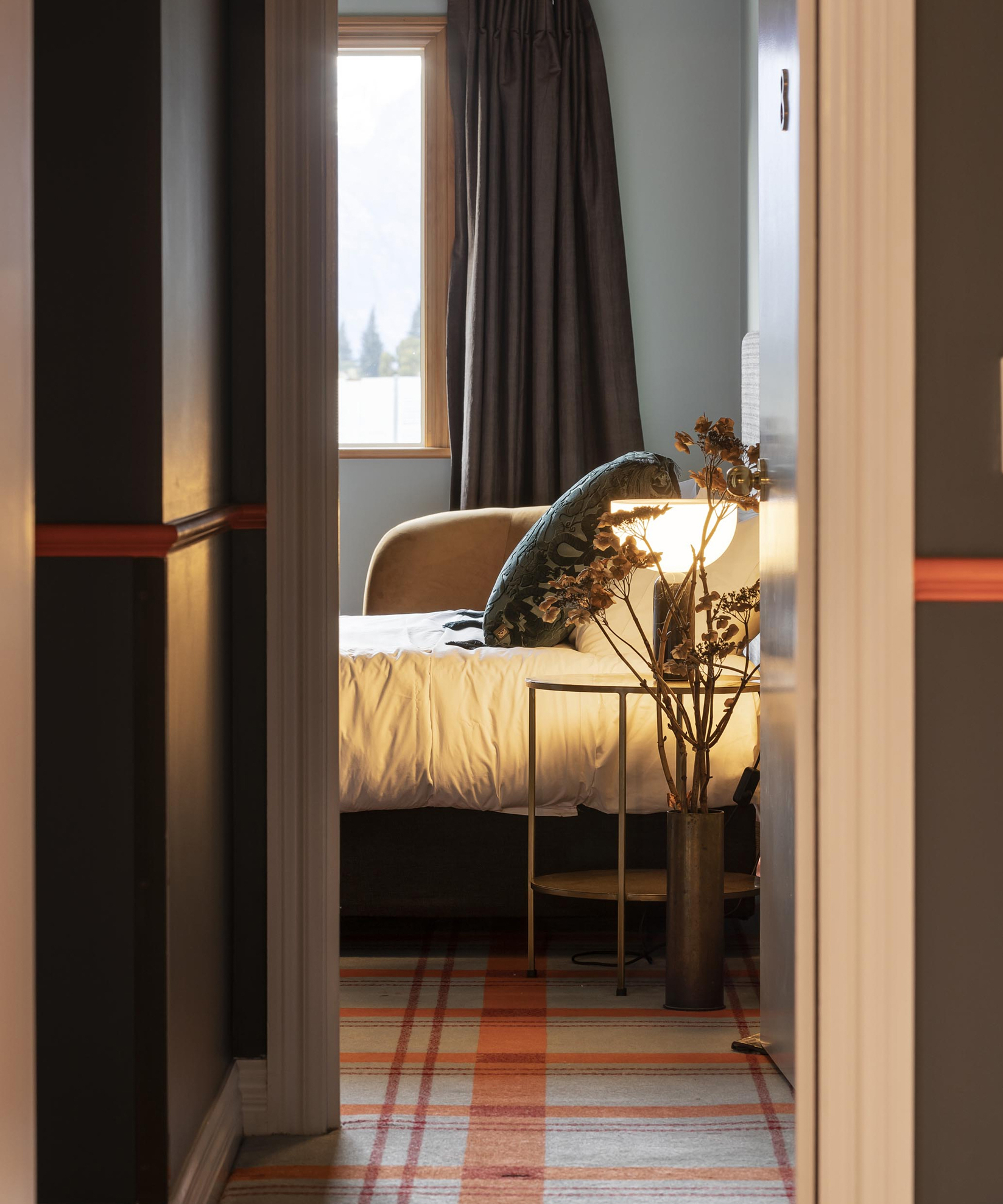
If there's one common desire that most people have, that's to achieve a good night's sleep. In fact, it's become a bit of an obsession for modern society. We've seen a trend referred to as 'sleep-maxxing' surface this year, where people take every possible opportunity to improve their sleep hygiene and get the perfect eight hours each night.
But while you might have already embraced mouth-taping or melatonin, there's one big question sleep-maxxers need answered: does the direction you sleep in really help in getting better rest?
According to Vastu Shastra and Feng Shui, the direction your bed faces can greatly affect the quality of your sleep — it's all about sleeping along the flow of energy. Sleep experts, however, have a different take; for them, creating the most tranquil environment in the bedroom (with regard to color, noise, light, and more) is essential for good sleep.
So is north the best direction to sleep in? Or does it not really matter? We take advice from both sides of the debate.
So, does a bed facing north ensure you sleep better?

It depends on what school of thought you prefer to follow. "Cultural beliefs such as Vastu Shastra and Feng Shui suggest that the direction your bed faces could affect energy flows which may affect your sleep quality," says Nichole Mondshein, a Sleep Expert at Sleepopolis. "According to Vastu Shastra, you should sleep with your head pointed south or east, with your feet pointing north, to align with Earth's magnetism, potentially deepening your sleep." Also, as per this belief, when people switch to sleeping in a southward-facing direction, their blood pressure lowers and their sleep quality improves.
However, professional sleep experts feel differently when it comes to whether it's important. "The direction you face while sleeping doesn’t directly influence how well you sleep," shares Nichole. "However, factors like light exposure, noise levels, and airflow do have an impact so positioning your bed to avoid disruptions is best." Plus, several devices specially designed for good sleep can help improve the quality of rest, from noise machines to daylight lamps.
Price: $23.99
This white noise machine has 21 soothing sounds, customized timers, and various volume levels. It lasts throughout the night on a single charge.
Price: $29
This sleep mask has an elasticized strap with Velcro® closure, and provides a snug, adjustable fit. It ensures total darkness, and molds perfectly to your face.
Price: $169.99
This is the most calming bedside light and sleep clock that reflects soothing colors at night and has a gentle sunrise alarm in the morning.
How does sleeping with head facing north affect your sleep, according to Vastu Shastra

In Vastu Shastra, one of the things to aid sleep and ensure you rest well, is the direction you lie down in. This is believed to be down to the earth’s magnetic field which affects iron in the blood. And so, when facing the north direction, the iron flow in the brain is light, which helps you sleep better.
Energies originating from the south (the direction where you place your head) not only are believed to aid in sleep but also bring fame and prosperity. Interestingly, a study in 2019 found that people who slept with their heads in the south and feet in the north experienced significant changes in delta, theta, and alpha brain frequencies, and in turn, had better sleep compared to individuals who slept in an east-west direction.
Is it important to have the bed facing north in Feng Shui?

Bedroom Feng Shui isn't only about the direction of your bed, but it's something practitioners would consider.
"The answer is dependent on the person and the home," says Jane Langof, founder of Feng Shui Concepts. "For some people, a north-facing bed might make sense, but there’s no one-size-fits-all solution. The physical aspects of a room are important, such as its practical layout and physical location. Consider the yin and yang aspects (cold, hot, shade, light) and the orientation of the room. Are you better suited to a cooler or warmer space to enhance a restful sleep? Which suits you best?"
"Then consider the best layout within the room," adds Jane. "The best place for the bed is in the area diagonally opposite the door. The bed should be placed along a solid wall without a window. The best place for your bedroom is also determined by the energy map of the home, which is like a horoscope that determines where the positive and negative energies are located. Ideally, you want to be sleeping in the room that contains the best energy for harmony, health, and relationships. Feng Shui masters use specific Feng Shui formulas to determine the best bedroom location in your home. Ideally, you want to satisfy the conditions I mentioned, and sleep with your head pointing towards one of your favorable directions."
Is sleeping with head facing north recommended by sleep experts?

"No strong scientific evidence suggests that the direction you sleep in has an impact on your sleep quality," says Jill Zwarensteyn, a Certified Sleep Science Coach at Sleep Advisor. "It’s more important to focus on the comfort of your mattress and pillow, the temperature and background noise in your room, and your sleep habits, like sticking to a consistent bedtime and having a relaxing pre-sleep routine. Sticking to a calming sleep environment and practicing habits that relax your mind and body will likely improve your sleep quality more than the direction your bed faces."
The quality of your bed — a hard bed vs soft bed — positive colors for bedroom, and clever bedroom lighting tricks can all help you sleep better.
Price: $1,495
Get multi-zoned support to help align your spine with this hybrid mattress from Casper. It has comforting foam to help to relieve your body from pressure as well as springs to prevent sinking. A truly luxurious night's sleep.
Price: $1189
Sleep easy knowing your mattress is sustainable with this organic latex, wool, and cotton option from Avocado green. The medium-firm mattress has no polyester, polyurethane foams, or toxic fire retardants to harm you either.
Price: $179
This is a great, budget-friendly option. It offers a durable and consistent sleep surface, and has more than 440 coils, evenly distributed across it. Topped with a quilted foam layer, it offers a soft padding.
Does the direction of your bed matter?

Largely, whether you sleep facing the window, the door or are positioned towards the north direction, it doesn't matter as much as your personal comfort.
"It's all about how calm or safe the position of your bed makes you feel," says Jeff Kahn, CEO and Co-Founder of Rise Science. . "Positioning your bed away from doors and windows, but still within sight of these access points, can potentially promote a sense of security that can help you relax — a necessary ingredient in falling asleep."
There's also the factor of your bedroom's natural light. As Jeff notes, because getting natural morning light is so important for a good night’s sleep and improving your circadian rhythm, facing your bed towards a window to help you receive more morning light, such as an easterly window, will also be beneficial.
What other changes can you make to improve sleep quality?

If you've had a bad night's sleep, the bottom line is that the direction you sleep in probably isn't the real aggravating factor. Before you commit to changing your bedroom layout to test it out, there are a whole host of other small changes you can make in the bedroom that are proven to improve sleep instead.
"Making your bedroom into a “sleep sanctuary” is key to helping you rest and recharge," says Jeff. "Consider decluttering your space, choosing comfortable bedding and sleepwear, and making sure your bedroom smells inviting."
It's also a good idea to keep your bedroom slightly cooler than the rest of your home to help you sleep at night. Susan Miller, lead researcher and certified sleep expert at Sleep Mattress HQ suggests setting the temperature between 60-67°F. Dimming the lights an hour or so before you sleep can also help prompt your body's natural sleep cycle. "Ensure your bedroom is comfortable and free from distractions like bright lights, electronics, and disruptions from outside noise," says Tom Greenspan, co-founder and Sleep Science Coach at VS Mattress. "Taking steps such as these can help improve overall sleep quality regardless of the way you face in bed."
If your bedding is due a refresh, it's worth researching how to choose the right mattress for your sleeping position. "When putting together the ideal sleep environment, it’s not just about optimizing temperature, humidity, noise, and light," says Michael Breus, sleep expert at The Sleep Doctor. "Having the right mattress, pillows, and bedding can also help you feel relaxed and ready for a good night’s rest." Not only do they offer the comfort and support we need during sleep, but they play an important role in regulating body temperature too. "If you sleep hot, look for a mattress that promotes good airflow around the body and doesn’t retain too much body heat," suggests Michael.







